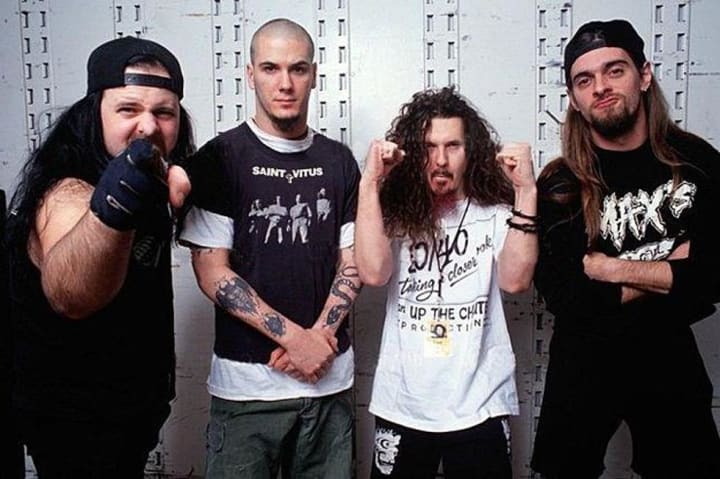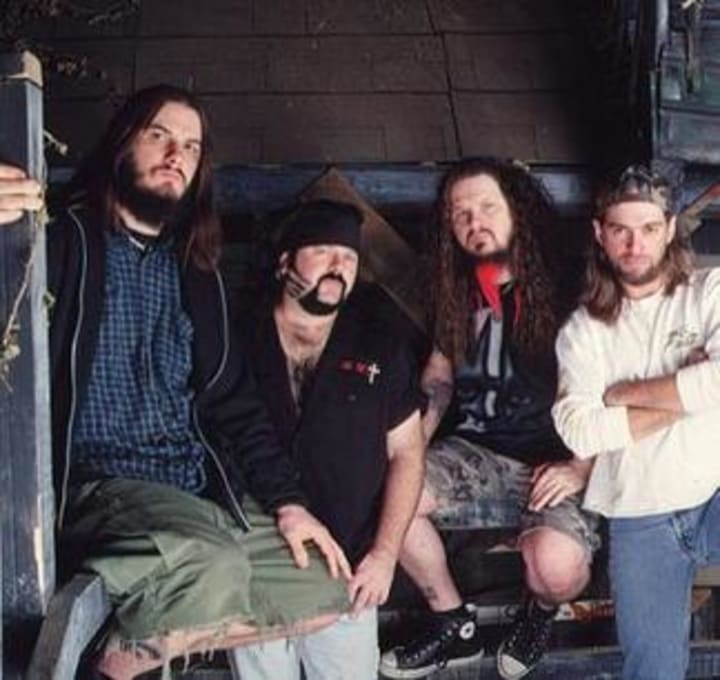
Rock music has its roots in the rock and roll of the '50s. It first appeared by combining country music with blues. Later, rhythm and blues elements were added. Subgenres appeared from the beginning, but since the 70's these subgenres have multiplied and especially differentiated a lot. This is how the genres of punk, heavy metal, alternative rock and others appeared, which in turn gave birth to subgenres.
Rock and roll
The first artists to approach the rock and roll (or rock 'n' roll) style were African Americans (Chuck Berry, Bo Diddley, Little Richard, Fats Domino). Immediately a wave of whites appeared, who were accused of "stealing" a black musical style and making it "white" (Bill Haley, Buddy Holly, Elvis Presley, Jerry Lee Lewis, Johnny Cash). Towards the end of the 50's, the audience at the concerts became mixed. Rock is a way of life.
The British invasion
Songs by artists like Elvis Presley have crossed the ocean, where a new trend has sprung up in the UK: British rock. Inspired by American rock and roll, British rock would revolutionize music, through bands like The Beatles, The Who, The Yardbirds, The Animals, The Kinks, The Rolling Stones or Queen.
Folk rock
In the USA. there is a current that will combine rock music with folk music. The resulting product, called folk rock, is represented by Bob Dylan, The Byrds, Neil Young, Simon & Garfunkel, The Mamas & the Papas, Joni Mitchell, The Band and others.
Psychedelic and progressive rock
The next important current in the history of rock music is the psychedelic rock genre, as a reaction to the spiritual crisis of Western consumer societies (Europe, USA). A more comprehensive expression is sought both as a form and as a message, at the same time viable in contact with the general public. It borrows a lot from other musical genres, the instrumentation is much richer and includes unheard sound effects; an area of influence preferred by many is the Orient, in the form of Arabic, Indian music or - much less often - cultures from the Far East (China, Japan, Indonesia). Representatives include The Doors, Grateful Dead, Jefferson Airplane, Jimi Hendrix, The Velvet Underground, partly The Beach Boys (U.S.A.), Pink Floyd, The Rolling Stones, The Who, but also the already well-known Beatles. a second stage of creation, carried out after the mid-sixties (the bands mentioned come from the British landscape). Also from the UK, the band The Kinks should be mentioned, which "defied" the psychedelic current and foreshadowed other areas of rock music from the seventies.
The influence of rock music reached a significant moment in the summer of 1969, when five hundred thousand people took part in the Woodstock Festival.
In the early 1970s, psychedelic rock music gradually changed direction, being built around an increasingly specialized audience, developing a refined language, moving away from the "populism" and irrationality of psychedelic music (often fueled by psychedelic experiences - hence the name - caused by drug use). A music, called progressive rock, is elaborated, which often appeals to the means of cult music (understood by rock musicians in more or less opportune ways, which leads to a reserved attitude on the part of the academic music environment). It is the era of a great stylistic diversification, of the extended solo instrumental moments (bringing with the developments of this kind from the world of jazz music). Mention should be made of Genesis, Yes, King Crimson, Emerson, Lake and Palmer, Van der Graaf Generator, Renaissance (UK), Amon Düül II, Can (Germany), Captain Beefheart, Frank Zappa and The Mothers. of Invention, Kansas (USA), Rush (Canada) (France) and many others.

Hard rock and heavy metal
In the mid-1960s, hard rock also appeared in the United Kingdom, from which heavy metal would later emerge. It later separated from the rest of rock, becoming an individual culture. Led Zeppelin, Black Sabbath, Alice Cooper, Deep Purple, Van Halen, Iron Maiden, Judas Priest, AC / DC, Whitesnake, Scorpions. Many subgenres will develop in the 1980's, such as glam metal, power metal, speed metal, doom metal, gothic metal, symphonic metal, death metal, thrash metal, black metal.
Punk rock
Punk rock appeared in the late seventies, as a current against the commercialization of the rock genre, but also as a reply to the elaborate music, often hermetic for the general public, of the progressive subgenre. The most important names in the first wave of punk are Sex Pistols, Ramones, The Clash and Patti Smith. In Britain, punk music has become an anarchist propaganda tool; even today, gender is associated with anarchism.

'






Comments
There are no comments for this story
Be the first to respond and start the conversation.